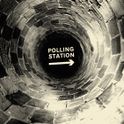Lawrence Freedman is professor of War Studies at King's College London, where he is also vice-principal. He is the Official Historian of the Falklands campaign and, since 2009, has sat on the committee of the Chilcot Inquiry into the Iraq War.
Freedman's latest book is Strategy: A History, a magisterial summary of a lifetime's learning that examines the long career of the notion of strategy, not just in military affairs but in politics and business too. I spoke to him a couple of weeks ago and began by asking him to define "strategy".
LF: Strategy is not long-term planning, precisely because you’re dealing with other wilful human beings. I see it as an attempt to influence the future by thinking through the moves you can take. There’ll always be accidents and surprises, so you need to keep the flexibility and improvisation. One of the messages of the book is that strategy is about dealing with the here and now, as much as some long-term goal—though it makes sense to keep your goals in mind. But none of the standard definitions are terribly successful. And mine, which probably suffers as well, is that strategy is the art of creating power. Which is to say that what good strategy can do is give you a better result than might have been expected just by looking at the resources available at the start. It’s about getting more out of a situation than might otherwise have been expected. That’s why it’s creative And bringing through that creative aspect of strategy is important.
JD: It’s only in the 18th century that the word “strategy” becomes associated specifically with military affairs isn’t it? You mention a young French general, Jacques Antoine Hippolyte, who was one of the first military theorists to make the distinction between strategy and tactics. Do you regard that as an important turning point in the intellectual career of the concept of strategy?
I suspect the word would have come into use anyway. And once the word was around, it spread very quickly. It’s one of these neologisms from the Enlightenment that seemed to meet a need. The word offered an opportunity to apply reason and even science to human affairs in an Enlightenment sort of way. And then you have Napoleon apparently demonstrating how the gifted general applying his theories could extract benefit where no one else could. So I think it’s a combination of the Enlightenment and Napoleon that gets the word into currency. When people talk about tactics they’re often thinking about short-term engagements. So if someone is purely tactical in that sense they’re often considered to be agile and clever, but maybe also cynical.
A very important figure in the book is Clausewitz. On your account, it looks as though his classic work On War was born out of an almost aesthetic distaste at the spectacle of the Battle of Bordino between Russia and France in 1812. You quote him saying that he found “not a single trace of art or superior intelligence in the battle”.
Borodino did influence him but it also nagged away at him, as did the whole Russian campaign. On the one hand, you have the essential Napoleonic belief that you win politics by winning the battle. But Clausewitz was aware that that wasn’t always the case. He saw that you could win battles without that resulting in an easy political victory as a result. And I think Bordino was part of that.
It seems to me that, for you, Clausewitz’s genius lies in the role he allots to the chaos and uncertainty of war. Was it his view that good strategy consists in the triumph over uncertainty and chaos, or was he making a more subtle point about the necessity for the strategist to be clear-eyed about the terrible uncertainties of war?
Clausewitz was one of the first people to theorise how things could go wrong. He made it an important part of his theory, though he didn’t do so to provide excuses. This led him to a certain conservatism in how he envisaged a campaign should be fought. He was against relying on great acts of surprise or deception because he could see how these could get badly unstuck.
Part two of the book ends with a discussion of the so-called “revolution in military affairs” (RMA) that seized the imagination of the US military establishment in the 1990s. Can we understand the RMA in part as a failure to absorb some of those Clausewitzian lessons about uncertainty insofar as it nourished a fantasy about the possibility of "precision" warfare?
I think so. The RMA reflects a view that developed in the American armed services which focused on the operational dimension almost to the exclusion of the political. It gained credibility because it was never tested against the Soviet Union or the Warsaw Pact, but against Saddam Hussein in the first Gulf War, who wasn’t able to test it very hard. So it seemed to work, albeit in very particular circumstances. But then the United States got itself entangled in larger campaigns in Iraq and Afghanistan, where you needed to think much harder about the political context in which precision weaponry was being used. Military strategy has always been very poor at integrating the political. It sees the political as the business of explaining where you get your objectives from and telling you something about popular opinion, but actually a lot of what happens in warfare is a civil rather than military issue. A lot of recent American military strategy was about keeping civilians out of the operational area.
Part three of the book is devoted to what you call “Strategy from below” and deals with theories of revolutionary politics and strategy from Marx onwards. Would it be fair to say that you see Marx as transferring the lessons of Clausewitz to the realm of what used to be called revolutionary “praxis”?
It’s not direct but it’s an influence on Marx. Engels was also very influenced by Clausewitz. Marx and Engels actually had a quite conventional view of warfare—they weren’t interested in irregulars or guerrillas. They conceived of a mass army of the people having to defend the gains of the revolution against the threat of counter-revolution. You see the same in Lenin—they’re looking to military strategy to think through how they can make the revolution work.
Can we see the emergence of revisionist social democracy with Bernstein as an abandonment of the Clausewitzian paradigm in socialist politics therefore?
Yes. The German military strategist Hans Delbrück, building on Clausewitz, developed an alternative theory of exhaustion or attrition, rather than the emphasis on the decisive battle. This was about taking your opportunities when they arose rather than risking everything on a frontal assault. Once you start thinking that your campaign revolves round a political party and you take your gains where you can get them and you stop thinking you can achieve everything through premature insurrection, then you are on your way more or less to where we are today.
Lawrence Freedman's "Strategy: A History" is published by Oxford University Press (£25)












